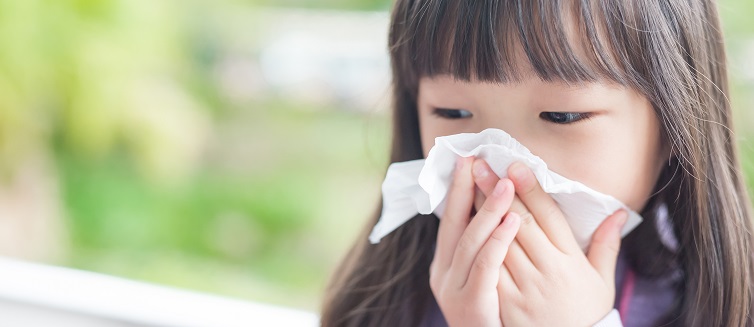Shared surfaces. Close quarters. And young children rubbing and touching their noses and eyes. It’s no wonder classrooms are breeding grounds for illness well beyond cold and flu season.
How do you know when it’s time to keep your child home sick, or when they’re well enough to head to the classroom? It’s important to weigh your options and determine what’s best for your child — as well as their classmates and teachers.
Never Miss a Beat!
Subscribe to Our HealthBeat Newsletter!
Thank you for subscribing!
You can now select the specific newsletters you'd like to receive.
You are already subscribed.
Subscribe to more newsletters in our email preference center.
Sorry, an error occurred. Please try again later.
Get Healthy Tips Sent to Your Phone!
When to Keep Your Child Home from School
First things first – what are his or her symptoms?
Evaluate the severity of the symptoms and the underlying causes before sending your sick child to school. Also determine whether the illness can be passed on to other students. If your child is contagious, it’s best to keep him or her home until the contagious period has ended.
Feeling under the weather? Make an appointment with a UPMC Primary Care doctor near you.
- Fever: Fevers are usually a sign of the body fighting infection. When someone’s temperature is more than 100 degrees, they should stay home for at least 24 hours after a fever breaks. Learn more about the severity of fevers.
- Diarrhea and/or vomiting: Both of these conditions are a means of your body ridding itself of germs. If your child has diarrhea, make sure he or she consumes plenty of liquids. Those with diarrhea should remain home until the symptoms cease and stool is solid.
- Sore throat: If your child’s sore throat is a symptom of a mild cold, he or she can go to school. But if the sore throat worsens or your child has been diagnosed with strep throat, wait at least 24 hours after beginning antibiotics to resume school and activities.
- Cough and cold: Again, your child can go to school with a mild cold, but severe cough and cold symptoms are a reason to stay home. Your child could pass the cold onto other children, and severe symptoms can be a sign of a more serious condition.
- Earache: Your child can go to school with an earache, as long as he or she feels well enough to concentrate.
RELATED: 5 Common Food Allergies in Kids and Adults
Deciding to Keep Your Child Home from Class
If your child is diagnosed with a contagious illness, including pink eye, the flu, chickenpox, or a rash, keep him or her home from school until your doctor gives the OK to proceed. Consider whether your child is too sick to participate in and learn from his lessons at school. For most illnesses, rest is important for recovery.
About Primary Care
The relationship with a patient and their primary care doctor can be extremely valuable, and that’s what you get with UPMC Primary Care. When you work with a primary care physician (PCP), you develop a lasting relationship. Your doctor will get to know you and your history and can plan your treatments accordingly. Our PCPs offer a variety of services, including preventive care and treatment for both urgent and chronic conditions. With dozens of UPMC Primary Care locations across our network of care, you can find a PCP close to you. Schedule an appointment today.




